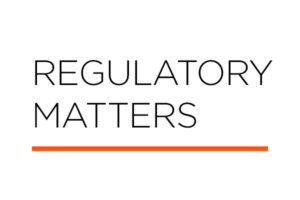 Within the Korean market, investor and governmental focus on non-financial factors has grown significantly in recent years. Alongside a series of rules and regulations codifying environmental and social considerations such as sustainable development, worker safety and carbon neutrality in the country’s laws and long-term strategies, Korean President YOON Suk-Yeol prioritized companies’ management of environmental, social and governance (ESG) issues as part of his administration’s transition agenda.
Within the Korean market, investor and governmental focus on non-financial factors has grown significantly in recent years. Alongside a series of rules and regulations codifying environmental and social considerations such as sustainable development, worker safety and carbon neutrality in the country’s laws and long-term strategies, Korean President YOON Suk-Yeol prioritized companies’ management of environmental, social and governance (ESG) issues as part of his administration’s transition agenda.
For corporate issuers, the focus on non-financial topics has, to date, primarily impacted reporting. This post provides an overview of current corporate disclosure practices, and potential developments in the market.
Current Disclosure Practices
As of 2023, under the Capital Market Act and Korea Exchange (KRX)’s disclosure regulations, companies must address non-financial issues in their Corporate Governance Report (CGR), Sustainability Report and Business Report.
Corporate Governance Report
The CGR operates on a “comply or explain” basis, with companies reporting against fifteen key indicators, including shareholder rights, composition of board of directors, board independence and internal control measures, amongst others. This disclosure was implemented by KRX’s disclosure regulations in March 2017 as a voluntary report. In 2019, it became mandatory for Large Companies with assets totaling up to KRW 2 trillion and, in 2022, for companies with assets totaling up to KRW 1 trillion. The CGR will become mandatory for all KOSPI-listed companies in 2026.
Sustainability Report
Whereas the CGR focuses on governance, the sustainability report covers environmental and social considerations, including ecology, gender, and labor. Whereas the CGR sets out specific items to disclose, sustainability reports provide more flexibility, allowing companies to select which standards to report against. Most companies publishing sustainability reports choose international standards such as the Global Reporting Initiative (GRI), the International Sustainability Standards Board (ISSB), SASB, or the Task Force for Climate-related Disclosures (TCFD). The disclosure is currently voluntary and according to the KRX, as of mid-August 2023 134 companies had disclosed sustainability reports in 2023, a 14.5% increase year-over-year. As such, there is a growing trend towards voluntary disclosure of sustainability reports by companies to match the demands of investors.
Business Reports
In accordance with the Capital Market Act, business reports can also contain non-financial information, covering ESG bonds, environmental and labor impact, and violations of related laws and regulations.
Unified K-ESG Disclosure Standards
While there are multiple channels for non-financial disclosures in Korea, both companies and investors have criticized the absence of unified reporting standards, which leaves companies uncertain about what constitutes market-recognized disclosure. Furthermore, investors face difficulties in making company-to-company comparisons across their portfolio. To tackle this issue, YOON’s government announced “ESG Infra Development Measures” in December 2022, including new ESG disclosure standards. In the same month, the FSC established the Korea Sustainability Standards Board (KSSB), following the ISSB. The intent is for the FSC and KSSB to evaluate domestic circumstances and global trends, and ultimately announce unified disclosure standards for the Korean market.
As a first step, the FSC is preparing for the announcement of a K-ESG disclosure roadmap later in 2023. The roadmap is expected to cover the scope of target companies, disclosure standards, a third-party verification system, and more. Taking a phased approach to implementation, the FSC initally planned to mandate non-financial disclosures for Large Companies in 2025, companies with assets totaling up to KRW 1 trillion in 2027, those up to KRW 500 billion in 2029, and all KOSPI-listed companies in 2030. However, in October 2023 the FSC decided to delay the mandatory disclosure to 2026, due to global and domestic market conditions and demands from Korean companies,.
Looking Ahead
Discussions regarding disclosure standards are still ongoing. One question that remains outstanding is whether to require the integration of non-financial disclosures as part of the business report, along with financial statements, or as part of a separate document similar to the current sustainability report. Requiring Korean companies to integrate ESG disclosures in their business reports would put non-financial reporting on par with traditional financial data. However, direct integration with the business report may be burdensome for companies, as they would be forced to assume liability and legal punishment regarding the reporting. Moreover, since business reports are published in March, at the same time that most companies are organizing their annual meetings, the timing could prove difficult. However, the simultaneous disclosure of non-financial and financial information is recommended by the ISSB’s standards, which the KSSB would follow in evaluating K-ESG disclosures.
Whatever form new requirements take, many investors will be monitoring the upcoming K-ESG disclosure roadmap and assessing their portfolio companies’ level of ESG integration and transparency.
